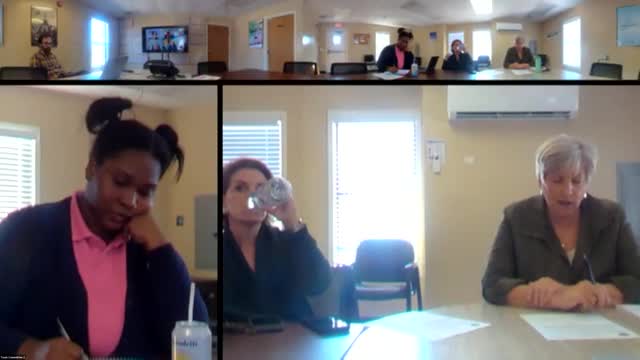Nantucket panel seeks stable human-services funding as needs assessment, contract changes advance
Get AI-powered insights, summaries, and transcripts
Subscribe
Summary
The Council for Human Services urged town officials to formalize and increase human-services and substance-misuse funding after years of flat allocations, and launched a needs assessment and administrative changes to improve grant delivery and community resource access.
The Council for Human Services on April 24 pressed Town officials to formalize and possibly increase the town's annual human-services funding after years of a flat allocation and recent cuts to a substance-misuse funding stream. Council for Human Services Chair Veronica Bolchick said the council will ask the town's Contract Review Committee and finance officials to seek a clearer, inflation-adjusted funding formula.
Why this matters: The town has funded human-services grants at about $650,000 for at least five years. Council members said inflation (they cited roughly 12%–18% since the allocation stabilized) and rising local costs for housing and food have eroded providers' capacity. Funding stability affects social services from youth programs to senior meals and housing support.
At the meeting, Bolchick said the council will ask that grant contracts require recipients to acknowledge town support visually and that the council will host a recipients' reception after the town meeting if the warrant passes. "We had much more ask than the money," Bolchick said, urging a formal request process for an increase. She also said the council will ask grantees to participate in the town's published human-services calendar (ACT Cares) and to accept technical help to post events.
Council members described a multistep path to secure a larger, more predictable allocation. The next steps begin with a formal request to the Contract Review Committee (CRC) and then work through town channels; that request must be routed through the same municipal approval process used for other budget changes. Jericho Meeley, a town staff member supporting grant administration, said the formal request must be started immediately after the annual town meeting and will follow CRC review.
The council also approved work on a community needs assessment to inform priority setting. Bolchick described the assessment as a social-determinants-of-health survey that will gather representative baseline data to guide future allocations and reduce reliance on ad hoc decisions. She said the assessment will rely on broad outreach and incentives to produce representative results.
The council plans administrative changes to the grant cycle and the CRC. Members said the CRC has taken on more grant cycles and more complex administration in recent years and that quorum and scheduling have become barriers during the busy spring and summer months. Bolchick and other members said they are exploring a restructured review body with subcommittees to spread the workload and protect continuity.
The council also demonstrated interest in an online resource tool the town is implementing. Staff described an instance of Network of Care (locally ACCares/ACT Cares) that now offers a chatbot/natural-language search to help residents find services by describing needs rather than program names. Bolchick said she will work to embed that tool across town web pages.
Votes at a glance: - Acceptance of the meeting agenda: roll-call approval (Sarah Wright: yes; Suzanne Keating: yes; Sue Mintonan: yes; Amanda Rosette: yes; Veronica Bolchick: yes). Outcome: approved. - Approval of minutes from the March 27 meeting: moved by Suzanne Keating; seconded by Sarah Wright. Roll-call approval (Sarah Wright: yes; Suzanne Keating: yes; Sue Mintonan: yes; Amanda Rosette: yes; Veronica Bolchick: yes). Outcome: approved.
What council members asked staff to do: prepare a formal funding request through the CRC, pursue a public-facing needs assessment, and integrate grantees into the town's human-services calendar. Members emphasized they want clear precommitment of total grant dollars before the next grant cycle so applicants can propose against a known pool.
The council did not set a dollar increase; members said the request will reflect current provider needs, and that inflation and rising housing and food costs are driving the ask. Bolchick said, "If you don't ask, we're not gonna get it."
